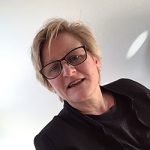My first 100 days

17 February 2020 at 4:25 pm
In the first of six interviews with current CEOs, Lea Corbett and Amanda Cornwall from Map consulting group speak with YMCA Victoria CEO Carolyn Morris about the experiences and challenges of leading an NFP.
Carolyn Morris had recently completed her first three months in the role of CEO of YMCA Victoria when we caught up with her. The Y’s previous CEO had been in the role for 17 years prior to Morris’ appointment so we were particularly keen to find out how she intended to put her own stamp on the organisation.
Prior to joining the Y, Morris worked within the aged care, childcare, finance and banking sectors including leading large business divisions at Bankwest, ANZ Bank and GE. She may have started in the private sector, but she says she has known all along that one day she wanted to be the CEO of a NFP.
YMCA Victoria – Vitals
Sector: Young people
Purpose: Believing in the power of inspired young people
Annual budget: Over $200 million
Staff and volunteers: Around 6,500 working across 170 different locations
Morris grew up in an aged care home – run by her parents – where she says she had the amazing benefit of being guided and nurtured by 40 grandmas and grandpas.
“At a formative period in my life I was lucky enough to have wisdom and life experience available to me in spades. Not all young people are so lucky, which is in large part why I am attracted to an organisation like the Y,” Morris says.
Once upon a time, the YMCA was an organisation focused on the welfare of young Christian men, but today’s Y is open to all comers. And while it maintains a strong focus on young people, it is inclusive of all genders, races and religions.
According to Morris, a large proportion of the organisation’s 6,000 odd staff are young people, and for many of them it will be the first job they have ever had.
“The top concerns for young people are also our concerns – access to employment, mental wellness, having a voice in their own affairs, and climate. Through employment, volunteering and a wide variety of programs the YMCA focuses on building strong foundations in terms of the strength and resilience of young people,” Morris says.
So, how has Morris experienced the first three months in her CEO role?
It’s no walk in the park
Morris says she has a supportive board and she meets with the board chair every fortnight for mentoring and support. She also spoke with her executive team early on in the role to assure them that she wanted to keep the ugly “politics” that she had experienced in the corporate world out of the YMCA. No playing favorites, no undermining and no patch-protection. She thinks they have a great “can do” culture and a united and collaborative executive who she loves working with.
“There is also a national leadership team for the 15 Y’s around Australia, and they have been a great source of support and advice for me,” she says.
Even so, Morris says the role is never easy. “It’s no walk in the park!”
Her main challenges to date include one that will be familiar to most, if not all, CEOs of not for profits – the constant tension between needing to be financially sustainable and delivering on your mission.
The YMCA differs from many other not for profits in that it earns most of its revenue from its commercial operations in the form of aquatic and recreational centre management (a result of social procurement by a number of local governments), child care centres, and learn to swim programs offered under the Kingswim brand. Fundraising and grants represent only a small fraction of their revenue base.
It’s a big business, and Morris says she has had to draw on every ounce of her past experience to get on top of the new role.
“We are a ‘not for profit’ but that certainly doesn’t mean we are for loss,” she insists.
Good news can be hard to sell
Morris has also been struggling with just how to get the good work that the YMCA does out to a wider audience.
“We are our own best kept secret in many ways”, she says. The social impact space is getting very crowded and it seems to be getting harder to promote even the great stories.
“How do we tell the broader community about the difference we make at a local level or to the lives of marginalised young people, and do so without hubris?” asks Morris.
Not surprisingly, within the organisation Morris is passionate about celebrating individual and organisational achievements. They had around 1,000 people attend their annual staff and volunteer awards event this year, generating much excitement throughout the organisation. Each week Morris also personally calls a member of staff who has been nominated “star of the week” to pass on her thanks and gratitude for the work they have done. Sometimes this is made public in the weekly staff and volunteer magazine, but not always. According to Morris, that’s a decision for the staff member concerned.
At all staff gatherings, Morris asks staff to identify what she calls “mission moments”, the small or large differences their efforts have made to help people and local communities grow in mind, body and spirit.
“It beats any pay cheque,” she says.
So, what advice would she give to people aspiring to be a CEO of a not for profit?
Love what you do
“First of all, this is not a retirement role, it is not a job for the fainthearted and if you are not passionate about the organisation’s purpose, you won’t last,” Morris says.
“It is a job that involves managing lots of different stakeholders, reminding them constantly about why you do what you do, and trying to view events and ideas from their many and varied perspectives. They all need to be kept informed and most don’t like surprises.
“Don’t expect to have too many weekends off.”
Having said that, Morris maintains the YMCA is very family friendly and she clearly sees a huge upside.
“I love my job, love the people I work with and love the work they all do,” she says.
Finally, we asked all of the CEOs in this leadership series to look through an even broader lens and tell us what they would do if they were premier of Victoria for a year – specifically what they would stop, start and keep?
For Morris, it would be increasing the share of the health budget spent on prevention.
“I’m told it is around 1.5 per cent currently which is woeful. We need more money going to the prevention of mental and physical illnesses and tackling the underlying problems like isolation and disengagement,” she says.
Providing young people with a stronger voice would also be at the top of her list.
“Young people need agency – to be able to speak, act and influence matters important to their own lives,” she says.
That is why the YMCA’s Youth Parliament has proven to be a huge success and why it is something that Morris would want to see retained. Over the years the Youth Parliament has generated many ideas that governments have taken up and legislated for.
Morris is hoping that lowering the voting age (but not making voting compulsory for people under 18 years) is another of these ideas whose time has come.
This article is the first in a six-part NFP Leadership series.
Map consulting group initiated this series of interviews with not for profit CEOs to share their insights about the role and support the success of leaders in the sector, current and emerging.









